Nose Surgery in Chiang Mai
Search and Compare the Best Clinics and Doctors at the Lowest Prices for Nose Surgery in Chiang Mai

Find the best clinics for Nose Surgery in Chiang Mai
With Medijump you can browse 8 facilities offering Nose Surgery procedures in Chiang Mai. The cheapest price available is $164 in Udon Thani
Nose Surgery in Thailand
Price: $ 164
Nose Surgery in Udon Thani
Price: $ 164
Nose Surgery in Nonthaburi
Price: $ 222
Poland offers the best prices Worldwide
Price: $ 101
From 6 verified reviews
Phoenix, 14 July 2024
Great service and even better results. My dimples look so natural, and I couldn’t be happier.
From 3 verified reviews
Virginia, 02 August 2024
Good service.
From 6 verified reviews
Marie, 31 July 2024
Professional and caring staff. The tummy tuck procedure was smooth, and I’m thrilled with the outcome.
From 2 verified reviews
Julia Hamilton, 02 May 2024
Dr. Danai is very skilled. I had my first fillers done here, and the results were amazing. His technique is gentle, and the injections were more painless than I expected. I would recommend this clinic to anyone!!
From 2 verified reviews
Muirgen, 05 May 2024
Fantastic experience! The staff was professional and the results were incredible. My wrinkles have noticeably diminished. Highly recommend!
Beyond the Sea Clinic, located in Mueang Chiang Mai, Chiang Mai, Thailand offers patients Nose Surgery procedures among its total of 2 available procedures, across 1 different specialties. Currently, there's no pricing information for Nose Surgery procedures at Beyond the Sea Clinic, as all prices are available on request only, whilst the national average price is approximately $6,394. There is currently a lack of information available on the specialists practicing at the Clinic, and they are not accredited by any recognized accreditations institutes
T-Point Clinic Chiang Mai, located in Mueang Chiang Mai, Chiang Mai, Thailand offers patients Nose Surgery procedures among its total of 10 available procedures, across 4 different specialties. Currently, there's no pricing information for Nose Surgery procedures at T-Point Clinic Chiang Mai, as all prices are available on request only, whilst the national average price is approximately ฿230,100. There is currently a lack of information available on the specialists practicing at the Clinic, and they are not accredited by any recognized accreditations institutes
Pitchy Medicalclinic, located in Mueang Chiang Mai, Chiang Mai, Thailand offers patients Nose Surgery procedures among its total of 3 available procedures, across 1 different specialties. Currently, there's no pricing information for Nose Surgery procedures at Pitchy Medicalclinic, as all prices are available on request only, whilst the national average price is approximately ฿230,100. There is currently a lack of information available on the specialists practicing at the Hospital, and they are not accredited by any recognized accreditations institutes
Compare Before & After Photos of _procedure_photos.phpNose Surgery
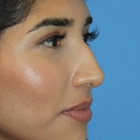
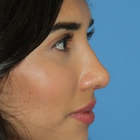
Full-side view
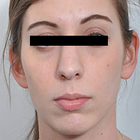
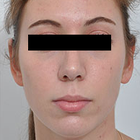
Front view
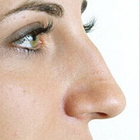
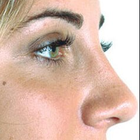
Full-side view
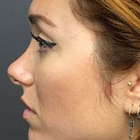
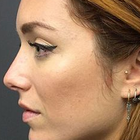
Full-side view
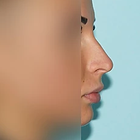
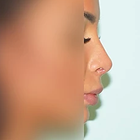
Full-side view
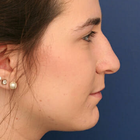
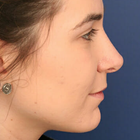
Full-side view
WHY US?
At Medijump, we're making medical easy. You can search, compare, discuss, and book your medical all in one place. We open the door to the best medical providers worldwide, saving you time and energy along the way, and it's all for FREE, no hidden fees, and no price markups guaranteed. So what are you waiting for?

Free

Best Price

Widest Selection

Risk-Free
What you need to know about Nose Surgery in Chiang Mai
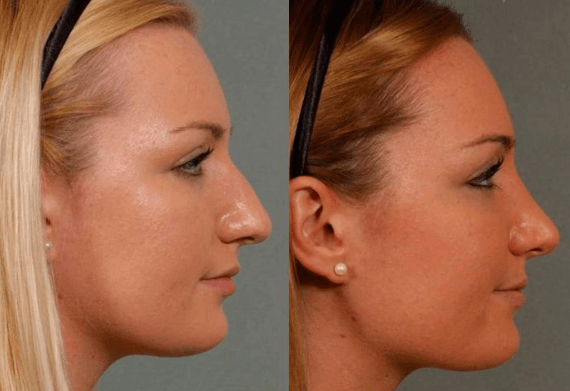
Commonly referred to as a Rhinoplasty, it is the medical term for reshaping of the nose or corrective surgery of the nose. It is one of the most common facial plastic surgeries (Facelift) procedures performed. Nose surgery can be performed to change the consequence of genetics, birth defect or nasal injury. It can be performed to enhance the appearance and/or to improve nasal breathing.
Surgery can be performed to correct nasal humps, the curvature of nose-bridge, nose tip irregularities, and asymmetry in the nostrils. The nasal appearance can be altered in various ways using intra-nasal chisels. Nose surgery procedures generally fall under three types: open rhinoplasty, closed rhinoplasty, and tip rhinoplasty. Rhinoplasty is normally performed under general anesthesia and will not leave any visible scars on the nose.
What does a Nose Surgery Procedure Involve?
Nose surgery is an individualized surgery. Before the surgery, you will need to discuss important factors with your surgeon to determine if it is suitable for you. Your surgeon will review your medical history, including your previous surgeries, medical conditions, and any medications you are taking. You will need to have a complete physical examination, such as blood tests. Your surgeon will also consider your other facial features, the skin on your nose, and what you would like to change or correct. Then, your surgeon will develop a customized plan for you. Two weeks before and after surgery, avoid any medications that contain aspirin or ibuprofen, such as Advil and Motrin IB because these medications can increase bleeding. You will need to also stop taking herbal remedies and over-the-counter supplements. If you are an active smoker, stop smoking because smoking can slow your healing process and increase the risk of getting an infection.
During the actual surgery, you will be given either local anesthesia or general anesthesia. The type of anesthesia depends on how complex the surgery is and what the surgeon would prefer to use. Then, the surgery will start by making incisions inside your nose or at the base of your nose between your nostrils. Your surgeon will reshape the inner bone and cartilage underneath your skin to make a more pleasing appearance.
There are several ways to change the shape of your nasal bones or cartilage, depending on your nose’s structure and how much needs to be removed or added. If only small changes are required, your surgeon may use cartilage taken from deeper inside your nose or your ear. However, for a much larger change, your surgeon may use cartilage from your rib, implants, or bone from other parts of your body. When the changes are finished, your surgeon will place the nose’s skin and tissue back. The incisions will be closed by stitches.
How Long Should I Stay in Chiang Mai for a Nose Surgery Procedure?
If everything goes well, you can go back to your hotel on the same day once the effects of anesthesia wear off. However, you will need to stay in a recovery room for a few hours so the staff can monitor you. Some people may need to stay in hospital overnight. After you are discharged from the hospital, you will need to stay in Chiang Mai for at least 10 to 14 days for initial recovery, follow-up checkups, and for the stitches to be removed.
What's the Recovery Time for Nose Surgery Procedures in Chiang Mai?
The recovery period for nose surgery can be different from person to person. In general, 2 to 3 weeks is needed until you can get back to your full normal routine and 3 to 6 weeks until you can do any strenuous activity. However, you should be able to go back to work within a week, except if your job requires strenuous physical activity. You will feel gradually better each day in the first week. You will experience swelling, which can take six months to subside. The only people who will notice the swelling is you and your surgeon. Your final nose shape will be apparent after it is completely healed.
What sort of Aftercare is Required for Nose Surgery Procedures in Chiang Mai?
After the surgery, you may need to wear a nasal splint for the first week. The splint is used to protect and support your nose. Your nose may be congested due to swelling or from the nasal splint. You need to rest in bed with your head raised higher than your chest to reduce bleeding and swelling. For a few days after the surgery, you may also experience slight bleeding and drainage of mucus. Your surgeon may place a “drip pad” under your nose to absorb drainage.
Your surgeon may ask you to avoid strenuous activity, take baths instead of showers, avoid blowing your nose, eat high-fiber foods to avoid constipation, not to do any facial expressions (smiling or laughing), not wearing pull clothing and wear button-downs instead.
For at least several weeks after the surgery, do not rest eyeglasses or sunglasses on your nose to prevent pressure. You should also wear SPF 30 sunscreen when you are outside because too much sun can cause permanent irregular discoloration to your nose. Do not put anything such as ice or cold packs on your nose even though it is swelling as the swelling will go away faster by limiting your dietary sodium.
What's the Success Rate of Nose Surgery Procedures in Chiang Mai?
Nose surgery is known to have around 80% to 90% success rate. Nevertheless, just like any other surgery, it still has possible risks and complications. These risks are bleeding, infection, numbness, permanent nerve damage, and an adverse reaction to the anesthesia. You should call your surgeon immediately if you suspect any of the symptoms. Other possible risks are difficulty breathing through your nose, uneven-looking nose, persisting pain, swelling, and discoloration, scarring, septal perforation, and the need for a second or third surgery.
For an in-depth analysis of the closed rhinoplasty procedure with before and after images, watch this short video.
Are there Alternatives to Nose Surgery Procedures in Chiang Mai?
If you do not want to undergo surgery, or if it is not suitable for you, you can get filler injections, such as Botox, Juvaderm, and Restylane. They can change the shape of your nose and only require a short visit to the doctor. This method is not painful and needs no incisions or stitches.
Whilst the information presented here has been accurately sourced and verified by a medical professional for its accuracy, it is still advised to consult with your doctor before pursuing a medical treatment at one of the listed medical providers
No Time?
Tell us what you're looking for and we'll reachout to the top clinics all at once
Enquire Now

Popular Procedures in Chiang Mai
Prices Start From $404

Prices Start From $111

Prices Start From $70

Prices Start From $220

Prices Start From $1,945

Prices Start From $192

Prices Start From $500

Recommended Medical Centers in Chiang Mai for Nose Surgery

- Interpreter services
- Translation service
- Religious facilities
- Medical records transfer
- Medical travel insurance
- Health insurance coordination
- TV in the room
- Safe in the room
- Phone in the room
- Private rooms for patients available

- Interpreter services
- Translation service
- Religious facilities
- Medical records transfer
- Medical travel insurance
- Health insurance coordination
- TV in the room
- Safe in the room
- Phone in the room
- Private rooms for patients available

- Interpreter services
- Translation service
- Religious facilities
- Medical records transfer
- Medical travel insurance
- Health insurance coordination
- TV in the room
- Safe in the room
- Phone in the room
- Private rooms for patients available

- Interpreter services
- Translation service
- Religious facilities
- Medical records transfer
- Medical travel insurance
- Health insurance coordination
- TV in the room
- Safe in the room
- Phone in the room
- Private rooms for patients available

- Interpreter services
- Translation service
- Religious facilities
- Medical records transfer
- Medical travel insurance
- Health insurance coordination
- TV in the room
- Safe in the room
- Phone in the room
- Private rooms for patients available

- Interpreter services
- Translation service
- Religious facilities
- Medical records transfer
- Medical travel insurance
- Health insurance coordination
- TV in the room
- Safe in the room
- Phone in the room
- Private rooms for patients available

- Interpreter services
- Translation service
- Religious facilities
- Medical records transfer
- Medical travel insurance
- Health insurance coordination
- TV in the room
- Safe in the room
- Phone in the room
- Private rooms for patients available

- Interpreter services
- Translation service
- Religious facilities
- Medical records transfer
- Medical travel insurance
- Health insurance coordination
- TV in the room
- Safe in the room
- Phone in the room
- Private rooms for patients available

- Interpreter services
- Translation service
- Religious facilities
- Medical records transfer
- Medical travel insurance
- Health insurance coordination
- TV in the room
- Safe in the room
- Phone in the room
- Private rooms for patients available

- Interpreter services
- Translation service
- Religious facilities
- Medical records transfer
- Medical travel insurance
- Health insurance coordination
- TV in the room
- Safe in the room
- Phone in the room
- Private rooms for patients available
Nose Surgery in and around Chiang Mai
About Chiang Mai
Chiang Mai is the fourth largest city in Thailand and is situated in the Northern part of the country. Chiang Mai is a land of misty mountains, hillside tribal villages and lush green landscape. Chiang Mai is not only an amazing holiday location but is also one of the most reliable and affordable destinations for medical tourism. Surprisingly, medical costs are cheaper here than in Bangkok and the facilities are up to date and for 3000 baht (approximately $100), you can have a complete health check-up.
Each year, thousands of medical tourists from all over the globe flock to Chiang Mai. The city's superior hospitals that are top-rated globally, boast dedicated International departments specifically put in place to meet the varying needs of these medical visitors. Impeccable hospitality services are a hallmark of these facilities, coupled with hospital personnel and medical professionals who are proficient in English.
These hospitals are equipped to provide wide-ranging treatments such as cardiac surgery, amongst others, and cosmetic procedures including but not limited to breast augmentations, liposuction, and cool sculpting. There are also quite attractive medical packages available that conveniently bundle treatment and accommodation.
The Chiang Mai Ram International, bearing a notable reputation for their remarkable services, stands out as the most frequented hospital in the city. Moreover, Chiang Mai is rich with numerous restorative amenities including spas, resorts as well as massage and healing centers. These outlets have cemented the city’s status as a perfect haven for post-treatment rejuvenation.
Popular areas in Chiang Mai
The metropolitan area of Chiang Mai is home to over 1 million residents. Listed below are the popular areas of this amazing city. Each area has its own charm and offers something to the visitors.
- Old City: Is the cultural and religious epicenter of Chiang Mai. The old town has moats and fortress walls from ancient times. Pae gate, which lies in the Old Town, is the most famous traditional landmark of the city.
- Nimmanhemin road: You can experience a bustling and vibrant nightlife here. Located close to the famous Chiang Mai University, this place is quite popular with the young and dynamic student population and you can find several affordable hostels and guesthouses on the Nimmanhemin road, varied housing options are available for long-term expats.
- Chiang Mai Night Bazaar: Considered as the ‘downtown’ of Chiang Mai, it is a paradise for shopping sprees. You will find a lot of street food shops which offer authentic Thai delicacies at affordable prices. Handicrafts, antiques, textiles and other traditional Thai products also come with affordable price tags. After 6 pm, this area comes alive and you can expect to see the streets very busy with enthusiastic tourists and locals.
- Riverside: The Riverside Chiang Mai has all of the old world charms that the city is renowned for with affordable eateries and live-music venues combined with the fresh river breeze and the relaxed atmosphere all helps to make it the best place to chill out during evening time.
- Santitham: The Santitham area of the city is mainly populated by Thai locals and this spot is less touristy and a bit more laid back. You can find supermarkets, public parks, and many residential buildings within this neighborhood.
Weather and climate in Chiang Mai
Located at an elevation of 316 meters, Chiang Mai enjoys a cooler and pleasant climate. As it experiences a typical tropical climate, winter, and spring seasons are not applicable. Instead, Hot, Cool and Rainy seasons are distinct in Chiang Mai.
- Cool: Early December to February. Day time temperature rises up to 30°C, yet, you may require sweatshirts to keep yourself warm as dusk approaches. It is the best weather to pay a visit to Chiang Mai. January is the coolest month of the season with temperatures dropping to as low as 10°C.
- Hot: Mid-February to mid-June. March is the hottest month in Chiang Mai with the temperatures rising to 40°C. You can escape the blistering heat waves and embrace the chilly breeze by visiting the nearby mountains.
- Rainy: Early June to late October. The average temperature drops down to 32°C during the rainy season. It rains almost every single day without fail. Even though the rainfall is heavy and the storms are intense, they won’t last for long. August is the wettest month of the year.
Getting around in Chiang Mai
Chiang Mai International Airport proclaims its status as the fourth busiest air hub in the country. It skillfully and efficiently manages a substantial volume of domestic and international flights. These flights provide vital connections between Chiang Mai and an array of prominent cities across the globe such as Bangkok, Beijing, Doha, and Ho Chi Minh, to mention a few.
While Chiang Mai, the bustling metropolis, boasts a sizeable expanse and a cosmopolitan vibe, its public transportation system falls somewhat short of organized. However, this minor shortcoming does not pose a barrier to exploration of this magnificent city. A plethora of other transportation mediums step in to bridge this gap, facilitating comfortable and convenient travel around the city. These constitute both traditional and modern modes of transport that cater to different tastes and preferences, all aimed at ensuring visitors and locals alike can fully experience and appreciate the city's remarkable offerings.
- Songthaew: The Songthaew or red truck is the most common and the desirable mode of transportation. For 30 Bahts, you can travel anywhere within the city, as long as you have no issues sharing your ride with other passengers. You can book private songthaew using the mobile app, GRAB.
- Tuk-tuks: Are the second most common mode of transportation next to songthaew. However, they are pricey as the rates start at 60 Bahts. It could be inexpensive too if you have exceptional bargaining skills.
- Taxis: Are quite expensive, costing somewhere between 100 and 200 Bahts per ride in the city.
Tourist visas in Chiang Mai
Thailand is a popular tourist destination for people from all over the world. Citizens of many countries, including the US, UK, Australia, Germany, and Singapore, do not need a visa to enter Thailand and can stay for up to 30 days without a visa.
Citizens of India and China who intend to stay in Thailand for up to 15 days can apply for a visa on arrival. However, if they want to stay for longer than 15 days, they will need to apply for a different type of visa, such as a transit visa or a non-immigrant visa.
Here is a summary of the visa requirements for Indian and Chinese passport holders:
- Visa on arrival: Indian and Chinese passport holders can apply for a visa on arrival if they intend to stay in Thailand for up to 15 days. The visa fee is 2,000 Thai baht.
- Transit visa: Indian and Chinese passport holders who are only passing through Thailand on their way to another country will need to apply for a transit visa. The transit visa allows them to stay in Thailand for up to 48 hours.
- Non-immigrant visa: Indian and Chinese passport holders who want to stay in Thailand for longer than 15 days will need to apply for a non-immigrant visa. There are different types of non-immigrant visas available, depending on the purpose of the visit.
To apply for a visa on arrival or a non-immigrant visa, Indian and Chinese passport holders will need to have a valid passport, a return flight ticket, and proof of funds. They may also need to provide additional documents, such as a hotel reservation or a letter of invitation from a Thai resident.
Additional Information
- Thai Baht is the currency of Thailand. 1 USD is around 34.5559 THB as of 2023.
- ATMs and exchange bureau are present at most of the tourist locations, making the withdrawal of local currency easy. You can pay by credit card in big restaurants, shopping malls, and hospitals.
- Thai is the official language of Thailand and is widely spoken in Chiang Mai. However, most of the locals in Chiang Mai do understand and speak good English. The street signs are also translated into English making it is easier for the tourists to get around.
- 90% of the total population of Thailand practice Buddhism, followed by Islam. Thai nationals exhibit deep love and admiration for their royal family.
- Notable public holidays:
- January 1 – New Year's Eve
- February 19 – Makha Bucha day
- April 12-16 – Songkran Festival
- May 5 – Coronation day
- December 10 – Constitution day
Popular Searches
- Plastic Surgery in Thailand
- Dental Implants in Thailand
- Hair Transplant in Thailand
- Breast Augmentation Thailand
- Gastric Sleeve in Thailand
- Gender Reassignment Surgery in Thailand
- Laser Hair Removal in Bangkok
- Botox in Bangkok
- Dermatology in Bangkok
- Breast Augmentation in Bangkok
- Coolsculpting in Bangkok
- Veneers in Turkey
- Hair Transplant in Turkey
- Rhinoplasty in Turkey
- Stem Cell Therapy in Mexico
- Rhinoplasty in Mexico
- Liposuction in Mexico
- Coolsculpting in Tijuana
- Rhinoplasty in Korea
- Scar Removal in Korea
- Gastric Sleeve in Turkey
- Bone Marrow Transplant in India
- Invisalign in Malaysia
- Plastic Surgery in the Dominican Republic
- Tummy Tuck in the Dominican Republic
- Plastic and Cosmetic Surgery in Poland
- Rhinoplasty in Poland
- Hair Implant in Poland
- Dental Implants in Poland
- IVF in Turkey







